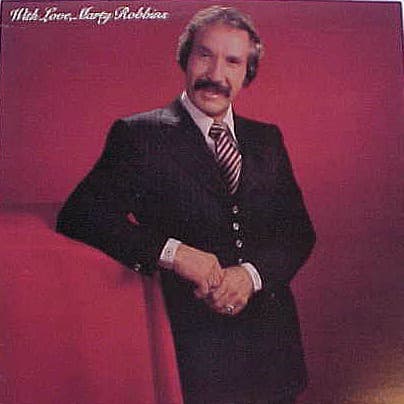
The Agony of the Hook: A Timeless Tale of Love’s Irrevocable Grip
There are certain songs, etched deep into the grooves of our collective memory, that manage to capture a universal truth with such plainspoken beauty they become instant classics. Marty Robbins’ “I Can’t Quit (I’ve Gone Too Far)”—often simply referred to as “I Can’t Quit”—is one of those enduring confessions, a melancholy masterpiece that resonates with the stubborn, sometimes foolish, loyalty of the human heart. Released in 1956 on Columbia Records, this track was the B-side to one of Robbins’ career-defining hits, the chart-topping country smash, “Singing the Blues.” While its flip-side achieved legendary status by hitting number one on the Billboard Country & Western chart and crossing over to the Pop Top 40, “I Can’t Quit (I’ve Gone Too Far)” held its own, reaching a respectable peak of No. 7 on the Billboard C&W chart. For a B-side, especially one sharing a record with a blockbuster, that is a testament to the sheer power of Robbins’ performance and his innate ability to connect with an audience.
It was a pivotal year for Marty Robbins, one that saw him solidify his place as a versatile powerhouse who could pivot from the sweet, tear-in-your-beer country ballads he’d become known for to the new, exciting sounds of rockabilly and crossover pop. “Singing the Blues” was a part of this career shift, but “I Can’t Quit,” which Robbins himself penned, anchors him firmly in the emotional bedrock of traditional country. This is the Marty Robbins of honest vulnerability, the “Mr. Teardrop” persona that fans had grown to love and trust.
The story behind the song is deceptively simple, yet cuts to the very core of a dilemma many of us have faced in a lifetime of complicated relationships. The singer is trapped—not by physical chains, but by the overwhelming, almost pathological addiction to a woman who is demonstrably no good for him. The lyrics aren’t about a sweet, misunderstood love; they are about a love that is recognized as destructive, yet is impossible to sever. “I’d like to leave you and forget you, but I can’t quit, I’ve gone too far,” he laments. This isn’t a fleeting infatuation; it’s an acknowledgement that the relationship has progressed past the point of no return, that his emotional investment has become so deep, so intertwined with his very identity, that leaving would feel like an amputation.
The meaning of “I Can’t Quit” is one of inescapable emotional dependency. It speaks directly to the experience of being “hooked”—a love that is more like a gravitational pull than a choice. Robbins delivers the words with a weary resignation, his smooth baritone carrying a quiet ache that feels profoundly genuine. He’s not screaming his anguish; he’s simply stating a fact, the painful finality of a heart that is no longer its own. For older readers, the reflective quality of the song hits home because it recalls those early loves—the ones we knew were wrong, the ones that cost us dearly, but the ones we couldn’t just walk away from because we had already “gone too far” down that path. The song’s instrumentation, simple and pure country, serves only to frame Robbins’ voice, making the lyric the undisputed star and allowing the emotional weight to settle heavily on the listener’s soul. It reminds us that some of the deepest hurts come not from betrayal, but from our own stubborn inability to let go, a tragic beauty forever preserved on that unassuming B-side.